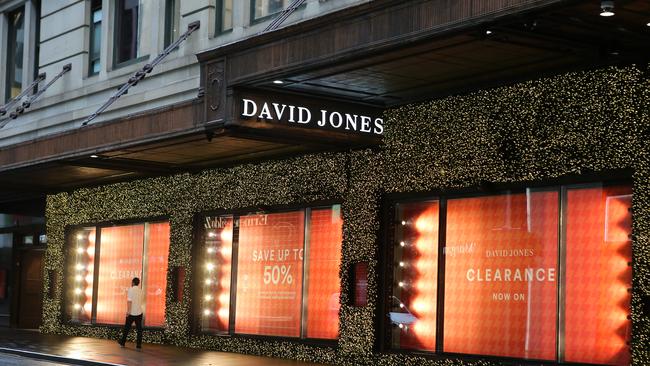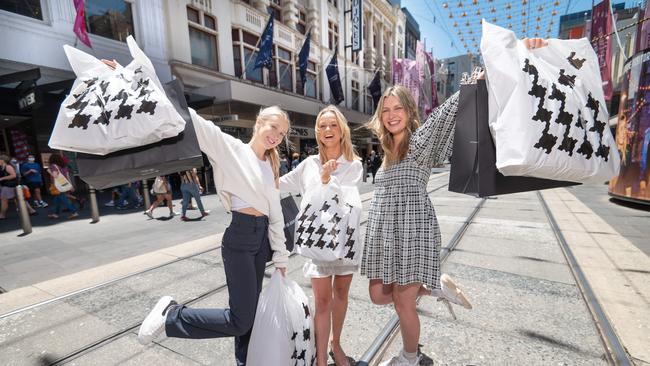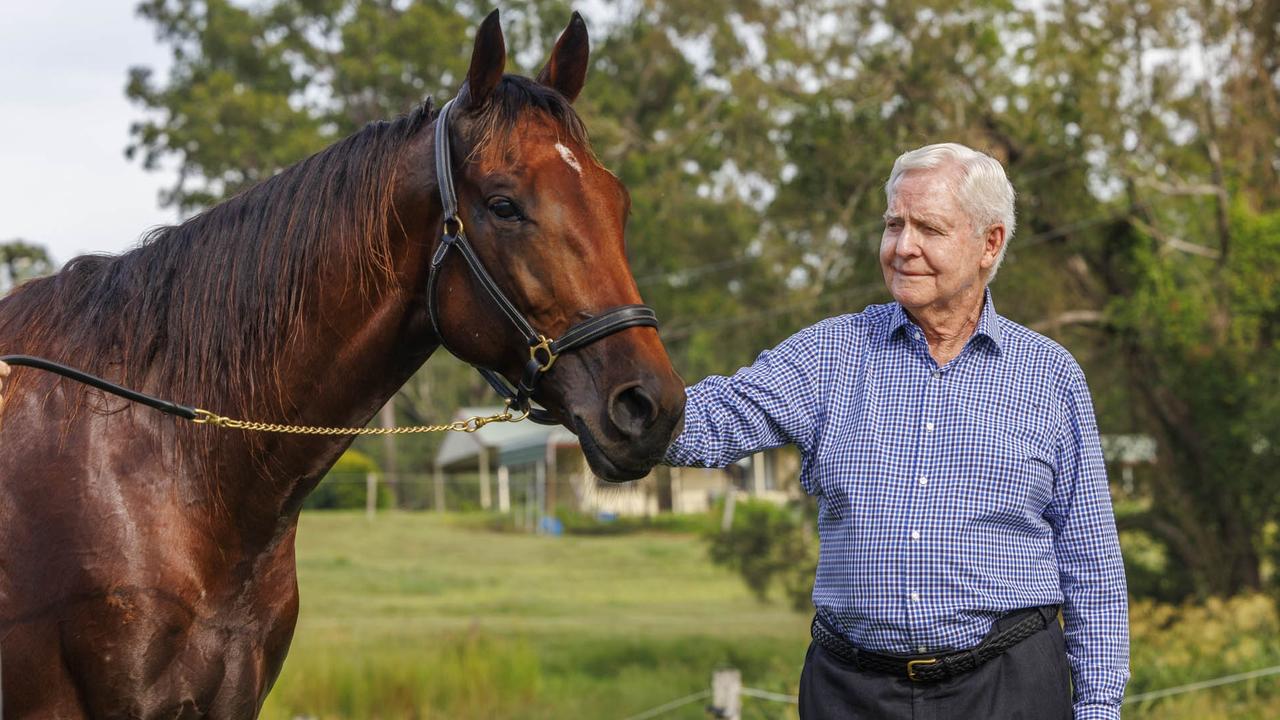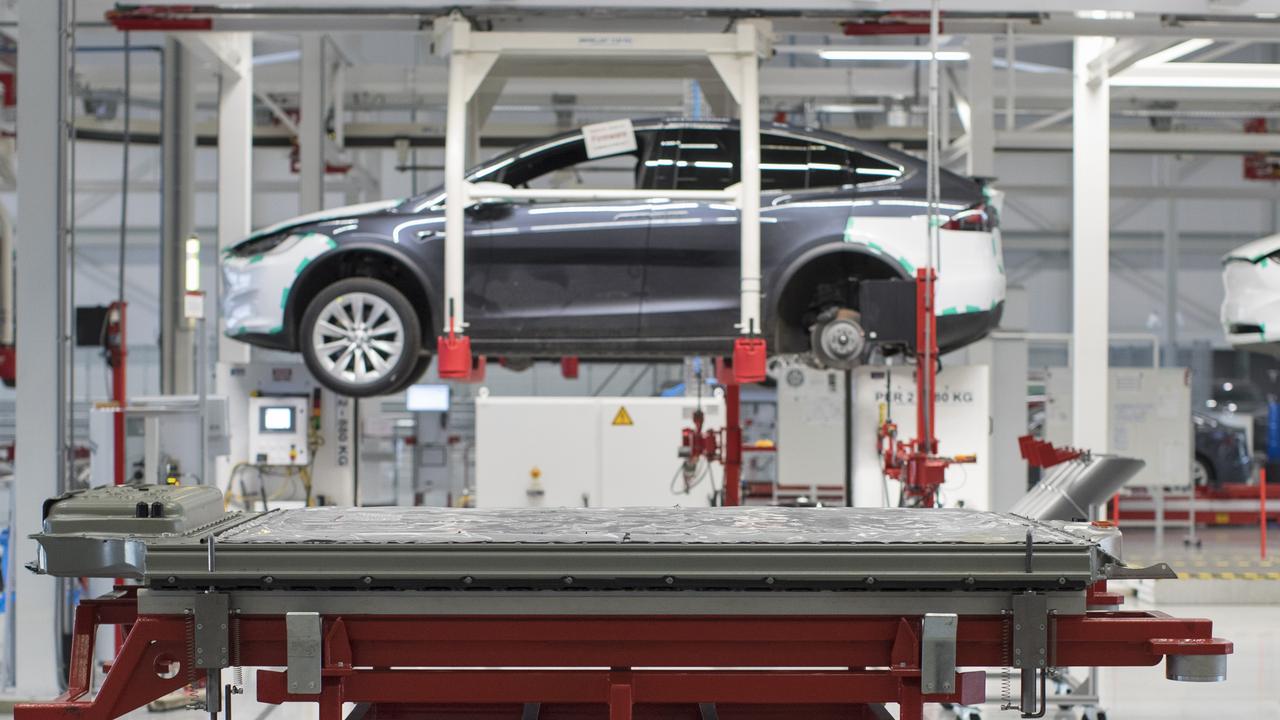South Africa’s Woolworths Holdings is talking to banks to help sell the up-market department store David Jones
Woolworths Holdings has held discussions with investment banks as it considers selling David Jones, the up-market Australian department store it purchased eight years ago.

Business
Don't miss out on the headlines from Business. Followed categories will be added to My News.
South Africa’s Woolworths Holdings has held discussions with investment banks as it considers selling David Jones, the up-market Australian department store it purchased eight years ago.
A sale would finally end an investment odyssey that has cost Woolworths billions of dollars in writedowns, seen the company churn through five CEOs, and created an ongoing headache for management in South Africa.
Woolworths, listed on the Johannesburg Stock Exchange and not linked to the Australian supermarket chain, has already spoken to a number of banks as it looks for a buyer for David Jones to rid itself of its disappointing, sources said. It paid $2.1bn for the Australian retailer in 2014.
There has been speculation in Australian and South African investment markets that the Woolworths board has finally pulled the trigger on the sale of the 184-year-old department store.
On Monday, a Woolworths spokesman told The Australian that it did not comment on media or market speculation. “If there were any developments that warranted communication to the market, it would be done as and when required,” he said.
But insiders at David Jones headquarters in Melbourne and at Woolworths Holdings in South Africa tell a different story, with the final details of a number of sale options now being openly discussed with external advisers and bankers.
Woolworths is considering sale now that the company has returned to profit, its properties have been sold and most of its debt has been paid off.
The move comes as Australia emerges from the worst of the Covid-19 pandemic, which left many of the high-end retailer’s stores closed for months.
The end of lockdowns and restrictions is creating sales and profit momentum.

A succession of investment and merchant banks have been sounded out for the sale.
It is believed that Woolworths is highly unlikely to get close to the $2.1bn purchase price it paid in 2014 when it launched its takeover bid for the then ASX-listed David Jones.
The financial health of David Jones has improved considerably in the last few years.
It recently broke a three-year streak of losses to post its first bottom line net profit since 2018, lifted out of the red by property sales, lease benefits and an end to a horror run of impairments that grew to almost $1bn.
The addition of more than $70m in JobKeeper and other government wage subsidy programs helped David Jones return to profitability as its operations were shaken by prolonged lockdowns across Sydney and Melbourne.
The department store’s accounts lodged on the Johannesburg Stock Exchange in late 2021 showed adjusted earnings for 2021 of $84m.
Woolworths – which also owns the Country Road Group, Trenery, Witchery, Mimco and Politix – has pushed through restructures and cost cutting in the last 18 months.
Operationally David Jones has proved a costly headache and distraction for Woolworths – both for the former CEO who launched the takeover, Ian Moir, and his replacement, Roy Bagattini, who was appointed CEO in early 2020.
There has been considerable churn of senior executives and management at David Jones since Woolworths Holdings bought the business eight years ago.
The retailer has had five chief executives in six years.
To get its house in order Woolworths Holdings has pushed through a spate of activity, including property sales, led by the sale of the David Jones Elizabeth St Sydney CBD building for $510m, which produces a gain of $19.02m, and the sale of a building in Bourke St in the Melbourne CBD for $121m, with a gain on the sale of $23.76m.
The fast pace of the turnaround was driven by key operational initiatives, including the removal of tens of millions of dollars of costs, shutting down most of its loss-making food halls, exiting its disastrous BP food alliance and cutting floor space by as much as 7 per cent.
While sales at David Jones fell sharply for first six months of the financial year, they rose by 3.2 per cent in the six weeks to December 31.
Online sales, the company said, rose 44.2 per cent over the six-month period and contributed 28.1 per cent of the total.
Equities analysts had warned of a string of potential unfavourable investment updates for the retail sector as companies begin reporting first-half results.
But poor bricks-and-mortar sales are being balanced by a rise in online shopping at some of the country’s largest retailers.
JB Hi-Fi, which reported its first-half sales in January, recorded a 62.6 per cent increase in online sales – now making up 22.7 per cent of the total.
That result led Citi analysts to upgrade expectations for its rival Harvey Norman. They now expect earnings to increase by 9 per cent for the financial year. Harvey Norman is benefiting from a boom in home renovation.
Originally published as South Africa’s Woolworths Holdings is talking to banks to help sell the up-market department store David Jones





